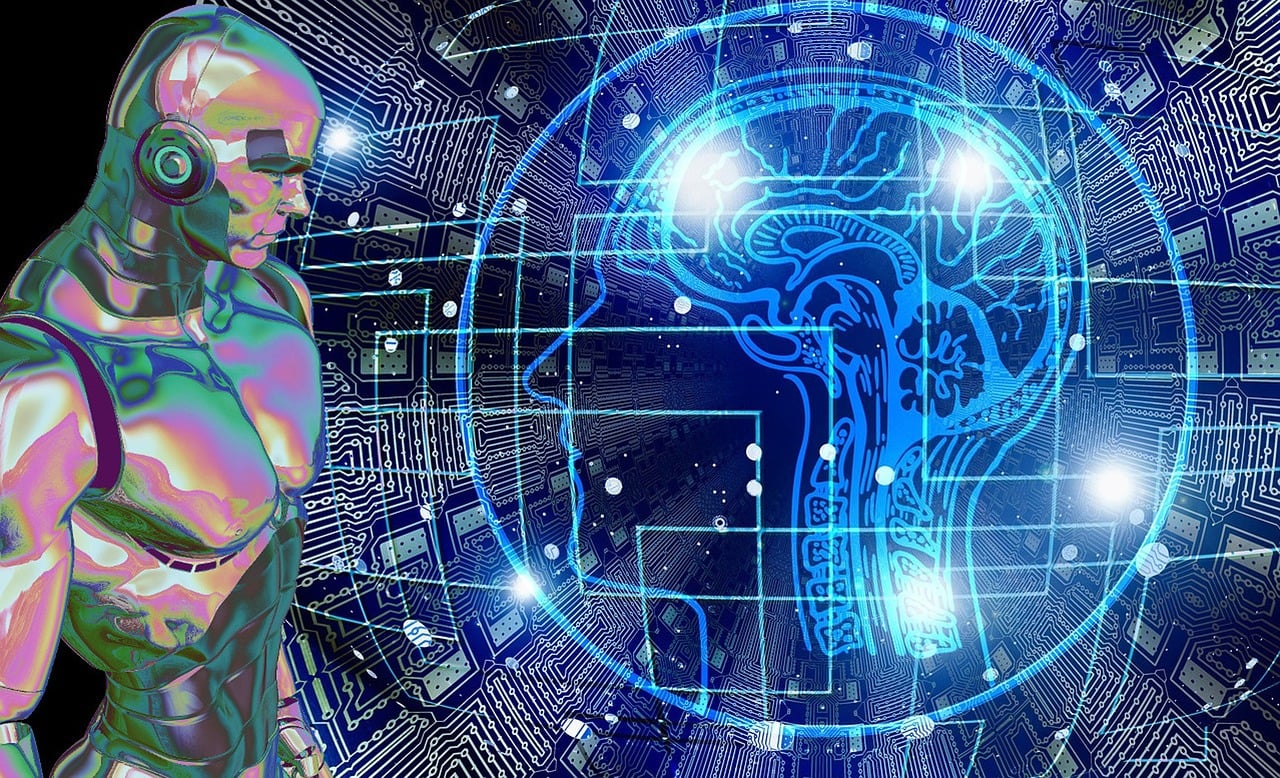Exploring The Impact Of AI On The Entertainment Industry
Artificial intelligence is one powerful buzzword in tech circles and beyond. The technology has begun transforming such diverse fields as healthcare, retail, and banking. Still, AI and its practical applications are a grey area whose ethical implications leave many analysts fearful of what’s to come.
Author:Elisa MuellerReviewer:James PierceApr 06, 20241.9K Shares31.1K Views

Artificial intelligence is one powerful buzzword in tech circles and beyond. The technology has begun transforming such diverse fields as healthcare, retail, and banking. Still, AI and its practical applications are a grey area whose ethical implications leave many analysts fearful of what’s to come.
This burning issue is especially palpable in the entertainment sphere, as the lines between human and machine-made creativity are getting ever-so-blurred. Whether AI can reach true artistry is debatable, but its influence on music, cinema, and gaming is too glaring to brush aside. So, let’s dive into the many ways in which AI is changing entertainment for good.
A Double-Edged Sword for Music
As we explored in depth on Washington Independent, artificial intelligence seems both a threat and a break in the clouds for the music industry. The advancements of AI algorithms have reached new heights in recent years, sparking the proliferation of unauthorized AI-generated tracks imitating the voices and musical styles of renowned artists. A fake collaboration involving Drake and The Weeknd was submitted for Grammy consideration in 2023, pushing the Recording Academy to revise its eligibility procedures. Meanwhile, industry leaders like Universal Music Group took action to safeguard the intellectual property rights of their artists, urging streaming platforms to clamp down on AI-generated songs.
While these copyright infringement issues raise significant ethical concerns, the music industry is not entirely opposed to AI technology. As early as 2020, the Korean company SM Entertainment introduced the first K-pop virtual girl band, Aespa. Virtual concerts reached broad audiences on Fortnite, while exclusive Fortnite showcases allowed artists like The Weeknd to gamify their art. Far from a fad, the trend is going strong as TechRadarreports that pop icon Lady Gaga will line up in the upcoming Fortnite Festival. Recently, a joint effort between musicians and AI experts resulted in the development of Suno, an AI-powered music creation tool enabling amateur musicians to bring their musical visions to life with professional-level quality.
A New Dawn for Cinema
The Hollywood strike of last year brought attention to the shifting landscape within the film industry. The groundbreaking AI agreement reached between screenwriters and performers may only delay the inevitable advancement of AI technology in filmmaking. Already, AI-generated digital replicas are resurrecting dead actors on screen, opening up new storytelling avenues while raising critical moral questions. Increasingly photorealistic tools, such as OpenAI’s Sora, also stir controversy among the VFX community amid fears of job displacements. Simultaneously, AI systems are rapidly learning to mimic the artistic vision of top filmmakers.
The AI takeover in cinema might not be so thoroughly bleak, however. The mainstream accessibility of machine learning tools could shake up the industry for the better by democratizing filmmaking. With just a smartphone and a few convenient tools, aspiring talents could soon make significant strides in cinema. On a larger scale, the technology can streamline labor-intensive pre-production and post-production assignments like location scouting and editing.
An Era of Ever-So-Immersive Gaming
The generative AI revolution is underway in the gaming industry, where most studios utilize AI systems and AI code assistants in gaming development. Prominent publishers like Ubisoft have rolled out in-house AI tools like Ghostwriter to alleviate the workload of their scriptwriters, freeing up time to polish a game’s narrative instead of undertaking laborious tasks like writing barks. Like in cinema, AI also enables independent studios to launch commercially viable titles. Meanwhile, AI is driving immersion in ever-so-interactive virtual worlds. Soon enough, players may walk up to any non-playable character and have organic conversations instead of picking one of several preset phrases.
While perfectly responsive NPCs are still far into the future, more practical use cases of AI are already commonplace online. The iGaming industry has embraced artificial intelligence to tailor its services while bolstering cybersecurity measures. That said, not all platforms are equally trustworthy. That’s why websites like Vegasslotsonlinehelp players navigate the online gaming realm safely. Industry experts scour the web to offer quality recommendations to users willing to try their luck at fun video slots and progressive pokies. Only licensed, reliable websites committed to fair gambling make the cut. Besides, exclusive partnerships with carefully vetted casinos allow players to claim bonus promotions they may not find anywhere else.
Like any tech revolution, AI is quite as controversial as it is transformative. In entertainment, it is hard to tell whether the pros of AI outweigh the cons. The AI wave is sweeping through entertainment platforms and businesses, nonetheless.

Elisa Mueller
Author

James Pierce
Reviewer
Latest Articles
Popular Articles